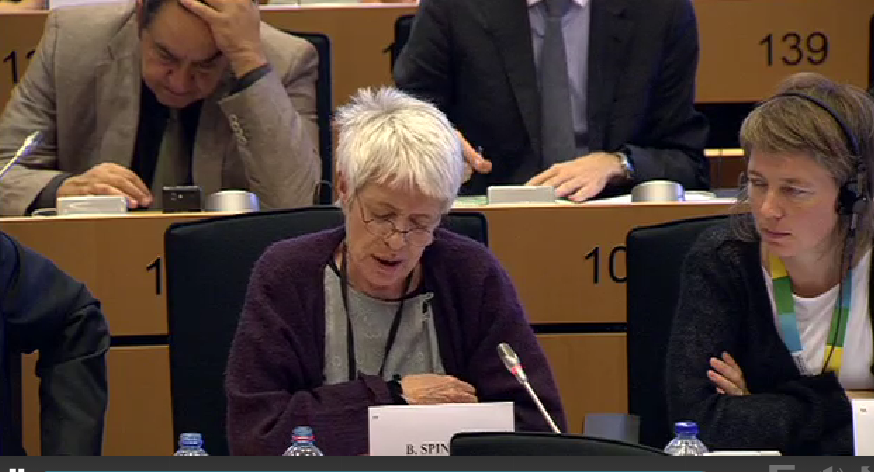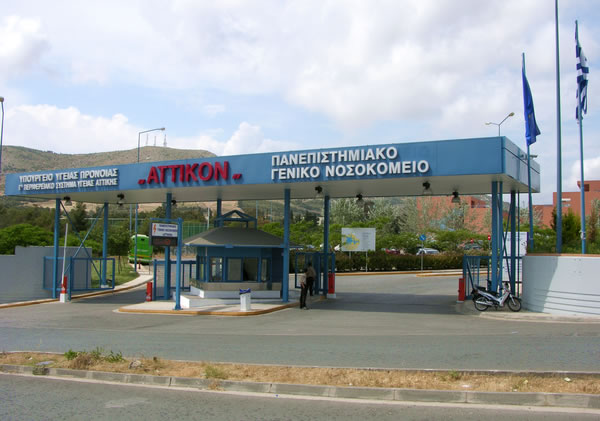“Βέτο” για τον Αβραμόπουλο από Ιταλίδα ευρωβουλευτή του ψηφοδελτίου του Τσίπρα
Τη διαφωνία της για την ανάληψη του χαρτοφυλακίου της Μετανάστευσης από τον Έλληνα Επίτροπο Δημήτρη Αβραμόπουλο, εξέφρασε η ευρωβουλευτής Μπάρμπαρα Σπινέλι που ανήκει στο πολιτικό group GUE και ήταν υποψήφια του ιταλικού ψηφοδελτίου “Η άλλη Ευρώπη με τον Αλέξη Τσίπρα”. H ίδια χαρακτηρίζει την Ελλάδα ξενοφοβική και τονίζει ότι έχει καταδικαστεί αρκετές φορές από το Ευρωπαϊκό Δικαστήριο Ανθρωπίνων Δικαιωμάτων.
“O ορισμός του Δημήτρη Αβραμόπουλου, του Έλληνα Υπουργού Εθνικής Άμυνας,στη θέση του Ευρωπαίου Επιτρόπου για τη Μετανάστευση και Εσωτερικών Υποθέσεων (ο συνδυασμός αυτών των δυο χαρτοφυλακίων ακούγεται ανησυχητικός) στην πραγματικότητα δείχνει ότι οι μετανάστες χαρακτηρίζονται ως κίνδυνος από τον οποίο η Ευρώπη πρέπει να προστατεύσει τον εαυτό της.
Από την πλευρά του Jean–Claude Juncker ο κ. Αβραμόπουλος μπορεί κάλλιστα να είναι ο κατάλληλος άνθρωπος, αφού οι στρατηγικοί στόχοι του περιλαμβάνουν την καταπολέμηση της παράνομης μετανάστευσης, τον έλεγχο των εξωτερικών συνόρων της ΕΕ, μέσω της ενίσχυσης της Frontex και της ακτοφυλακής, την εδραίωση της συνεργασίας με τρίτες χώρες για την καταπολέμηση της τρομοκρατίας και τις συμφωνίες επανεισδοχής με τις χώρες προέλευσης. Αλλά ο Δημήτρης Αβραμόπουλος δεν μπορεί να αποτελεί τη σωστή επιλογή για εκείνους που, στο Ευρωπαϊκό Κοινοβούλιο αγωνίζονται για μια νέα μεταναστευτική πολιτική, σύμφωνα με το Χάρτη των Θεμελιωδών Δικαιωμάτων και τη Συνθήκη της Λισαβόνας“, αναφέρει σε δήλωσή της η κυρία Σπινέλι.
Εξηγώντας γιατί απορρίπτει την επιλογή του Δημήτρη Αβραμόπουλου για τη συγκεκριμένη θέση επισημαίνει μεταξύ άλλων :
“Πριν από το διορισμό του ως Επιτρόπου για τη Μετανάστευση, ο κ. Αβραμόπουλος – ο οποίος διορίστηκε υπουργός Εθνικής Άμυνας το 2011, ανέλαβε το αξίωμα του υπουργού Εξωτερικών το 2012 και διορίστηκε πάλι υπουργός Άμυνας το 2013 – κατ ‘επανάληψη είχε δηλώσει ότι ο φράχτης είναι ένα αναγκαίο μέτρο για την “προστασία της κοινωνίας και των συνόρων μας από την παράνομη μετανάστευση“.
Και συνεχίζει:
“Η Ελλάδα έχει επανειλημμένως καταδικαστεί από το Ευρωπαϊκό Δικαστήριο Ανθρωπίνων Δικαιωμάτων για την έκθεση μεταναστών σε ταπεινωτική μεταχείριση, σε κατάφωρη παραβίαση αρκετών άρθρων της Ευρωπαϊκής Σύμβασης για τα Δικαιώματα του Ανθρώπου (και των άρθρων 18 και 19 του Χάρτη των ευρωπαϊκών θεμελιωδών δικαιωμάτων για το δικαίωμα ασύλου και συλλογικές απελάσεις). Πολλές ΜΚΟ και άλλες οργανώσεις έχουν καταγγείλει τις πρακτικές που εισάγουν διακρίσεις κατά των μεταναστών και των αιτούντων άσυλο.
Το 2013, το Παρατηρητήριο Ανθρωπίνων Δικαιωμάτων έκανε λόγο για ένα κύμα πρωτοφανούς ξενοφοβίας στην Ελλάδα. Τον Αύγουστο του 2012 οι Ελληνικές αρχές ξεκίνησαν μια επιχείρηση μαζικής καταστολής εναντίον υπόπτων παράνομων μεταναστών. Η επιχείρηση, με την κωδική ονομασία Ξένιος Ζευς οδήγησε στην αυθαίρετη κράτηση χιλιάδων μεταναστών στη βάση των εθνοτικών διακρίσεων, σύμφωνα με τους δικηγόρους που ειδικεύονται στα ανθρώπινα δικαιώματα.Ο
Αβραμόπουλος δεν έκρυψε ποτέ ότι εξισώνει τους πρόσφυγες με τους παράνομους μετανάστες που πρέπει να επαναπροωθούνται“
Διαβάστε στα αγγλικά ολόκληρη τη δήλωσή της:
DIMITRIS AVRAMOPOULOS, THE “FORTRESS EUROPE” COMMISSIONER, MUST BE REJECTED
Barbara Spinelli, September 30, 2014
The designation of Dimitris Avramopoulos, the Greek Minister of National Defence, as European Commissioner for Migration and Home Affairs (the very combination of those portfolios sounds worrying) actually suggests that migrants are labeled as a danger from which Europe must protect itself. From Jean-Claude Juncker’s point of view Avramopoulos may well be the right man, since his strategic goals include fighting illegal immigration, controlling the EU’s external borders via the strengthening of Frontex and of coastguards, consolidating cooperation with non-member States on the fight against terrorism and the readmission agreements with the countries of origin. But Dimitris Avramopoulos can’t possibly be the right choice for those, in the European Parliament, who fight for a new migration policy, in compliance with the Charter of Fundamental Rights and with the Treaty of Lisbon.
The mission letter addressed to the new Commissioner-designate contains no mention of the mass drownings that have turned the Mediterranean into a sea of death, nor does it make any reference to the opening of humanitarian corridors for the protection of those who seek safety from wars and famine entrusting their lives to smugglers and local mafias. The establishment of legal migration channels is envisaged only for regular migrants with skills and talents that would benefit the European economy. No mention of the European Directive on Temporary Protection (2001/55/CE), which offers immediate protection to refugees even when the asylum system can’t manage the increasing arrivals. No mention of the much-needed amendments to the Dublin III regulation. No mention of the possibility to cease cooperation with countries which do not ensure respect for human rights. In his answer to the questionnaire of the European Parliament, Avramopoulos declared that his main priority will be the fight against smuggling, not the opening of safe routes to Europe for those who flee famines or wars.
Let us remember the facts that underlie our rejection of President Juncker’s choice.
On January 3, 2011 – during George Papandreou’s government – the Greek Ministry of Public Order and Citizen Protection announced the construction of a razor-wire-topped fence in the Evros region, at the 12.5 km land border with Turkey, to stop the flow of irregular migrants and asylum seekers. The barrier, which was criticized by EU authorities and built without EU funding, was completed in December 2012. [1]
The erection of the 12.5 km barrier led to a dramatic drop in the number of illegal land border crossings: previously, the Evros region had become one the main hubs of migration into Europe, with an average daily number of 250 people (mainly originating from Afghanistan, Pakistan, Armenia, Kurdistan, Iraq, Syria, Somalia, Egypt, and North Africa) trying to enter into Greece.
Before his designation as Commissioner for Migration, Avramopoulos – who was appointed Minister of National Defence in 2011, assumed the office of Minister of Foreign Affairs in 2012 and was again appointed Minister of Defence in 2013 – repeatedly stated that the barbed-wire fence is a necessary measure to “protect our society and borders from irregular immigration”.
Greece has been repeatedly condemned by the European Court of Human Rights for exposing migrants to degrading treatment, in blatant violation of several articles of the European Convention on Human Rights (and of articles 18 and 19 of the Charter of European fundamental rights on asylum rights and collective expulsions).
Many NGOs and other organisations denounced the harmful and discriminatory practices against migrants and asylum seekers.
In 2013, Human Rights Watch exposed a wave of unprecedented xenophobia in Greece. In August 2012 Greek authorities launched a massive crackdown against suspected illegal immigrants. The operation, code-named Xenios Zeus (after the Greek god of guests and travellers) led to the arbitrary detention of thousands of migrants on the basis of ethnic discrimination, according to human rights lawyers.
Avramopoulos has never made a secret of equating refugees with illegal migrants that must be refouled.
In 2013, during an official visit to Bulgaria which focused on cross-border surveillance operations, he said: “During the past years in Greece we have faced a big problem due to the vast flow of illegal immigrants. The way this issue has emerged is well-known. In fact recently, due to the developments in Syria, the situation has worsened. We had to take measures. A part of these measures has already yielded fruits. The wall at the northern part of Evros has yielded fruits. The entry of illegal immigrants in Greece by this side has almost been eliminated. Yet the problem has not been resolved since, as you know, Greece has sea borders which also are Europe’s borders. This is why Frontex has been developed. Despite all these measures, the problem still exists because it is not possible to control the entire width of our maritime borderline. […] We understand both the human and the social side of this problem, yet we have to protect our societies and borders. This is not a task for the Ministry of National Defence, we cooperate with the apposite Ministries, but this issue has preoccupied us because one of its extensions relates to our national security. Behind all these flows, there might be hiding and developing nests that reproduce violence and, I do not hesitate to say, sometimes also terrorism”. [2]
Several human rights organisations have pointed out that the construction of barriers and barbed-wire fences to seal off Greek external borders has enormously increased the number of sea-crossings,rerouting the flow of fugitives and migrants to the middle of the Mediterranean and to the Italian coastline.










